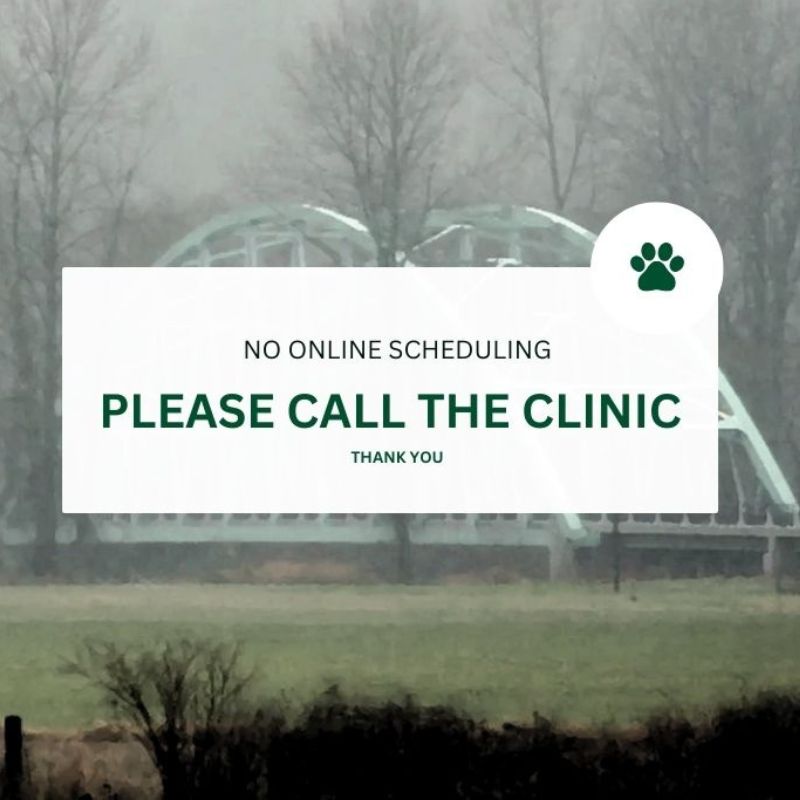Pet Loss and Grieving
Making euthanasia decisions is difficult. We are dedicated to helping you prioritize your pet’s well-being and make informed care decisions.
Pet Euthanasia and Grief: Navigating the Difficult Decision
What is pet euthanasia?
Pet euthanasia involves the humane and quiet induction of a pet’s death, performed by a veterinarian. It is considered when a pet is severely ill or injured and unable to lead a life of good quality.
How do I know when it's time for euthanasia?
Reprinted from the AVMA Association
It’s never an easy decision to make, but perhaps the kindest thing you can do for a pet that is extremely ill or so severely injured that it will never be able to resume a life of good quality is to have your veterinarian induce its death quietly and humanely through euthanasia.
A decision concerning euthanasia may be one of the most difficult decisions you will ever have to make for your pet. Although it is a personal decision, it doesn’t need to be a solitary one. Your veterinarian and your family and close friends can help you make the right decision and can support you as you grieve the loss of your pet.
What should I do?
Once the decision for euthanasia has been made, it is sometimes easier to discuss what you want to be done with the remains of your pet’s body before your pet is euthanatized – making arrangements prior to euthanasia can bring some degree of comfort to know what will be done with your pet’s body. You will not have to focus on these decisions while you are grieving the recent loss of your beloved pet. Your veterinarian can provide information about burial and cremation.
How will I know when?
Your veterinarian understands your bond with your pet and can examine and evaluate your pet’s condition, estimate its chances for recovery, and discuss any potential disabilities, special needs, and long-term problems. He or she can explain medical and surgical options as well as risks and possible outcomes. Because your veterinarian cannot make the euthanasia decision for you, it is important that you fully understand your pet’s condition. If there is any part of the diagnosis or the possible effects on your future that you don’t understand, ask questions that will help you understand. Although there are times when the decision needs to be made immediately, you usually will have some time to review the facts and discuss them with your family and friends before making the decision.
What if the animal is healthy?
Euthanasia might be necessary if a pet has become vicious, dangerous, or unmanageable. Some undesirable and abnormal behaviors can be changed, so it is important to discuss these situations with your veterinarian. If your dog is biting, please contact your veterinarian for advice regarding euthanasia. There are protocols dictated by the Department of Health.
Economic, emotional, and space limitations or changes in lifestyle also may cause an owner to consider the option of euthanasia for their pet. Your Veterinarian can help direct you to resources in finding another home for your pet.
Will it be painless?
Euthanasia is accomplished for pets by injection of a death-inducing drug. Your veterinarian will administer a tranquilizer first to relax your pet. Following the injection of the euthanasia drug, your pet will immediately become deeply and irreversibly unconscious as the drug stops brain function. Death is quick and painless. Your pet may move its legs or head or breathe deeply several times after the drug is given, but these are reflexes and don’t mean that your pet is in pain or suffering.
How can I say goodbye?
The act of saying goodbye is an important step in managing the natural and healthy feelings of grief and sorrow following the loss of a beloved friend and companion.
Once the euthanasia decision has been made, you and other family members may want to say goodbye to your pet. A last evening with your pet at home or a visit to the pet at the hospital may be appropriate. Family members who want to be alone with their pets should be allowed to do so. Some pet owners choose to be present during their pet’s euthanasia, but others choose to say goodbye beforehand and not be present during the euthanasia. This is a very personal decision, and you should do what feels right for you. Do not let others pressure you into making a choice that makes you uncomfortable.
How can I face the loss?
After your pet has died, it is natural and normal to feel grief and sorrow. For some people, spending some time with their pets after euthanasia is helpful. The grieving process includes accepting the reality of your loss, accepting that the loss and accompanying feelings are painful, and adjusting to your new life that no longer includes your pet. By understanding the grieving process, you will be better prepared to manage your grief and help others in the family who share this loss.
Sometimes well-meaning family and friends may not realize how important your pet was to you or the intensity of your grief. Comments they make may seem cruel and uncaring, although they were not meant to be taken that way. Be honest with yourself and others about how you feel. If you feel despair, talk to someone who will listen to your feelings about the loss of your pet. Talk about your sorrow but also about the fun time you and your pet spent together, the activities you enjoyed, and the memories that are meaningful to you.
The stages of grief
There are many stages of grief, but not everyone experiences them all or in the same order. The stages include denial, anger, guilt, depression, acceptance, and resolution. The grief can seem to come in waves, may be brought on more intensely by a sight or sound that sparks your memory, and may seem overwhelming at times.
Your first reaction may be denial-an unwillingness to accept the fact that your pet has died or that death is unavoidable. Denial may begin when you first learn the seriousness of your pet’s illness or injuries. Often, the more sudden the death, the more difficult the loss is to accept and the stronger the denial.
Anger and guilt often follow denial. Your anger may be directed toward people you normally love and respect, including your family, friends, or your veterinarian. People coping with death will often say things they do not really mean, unintentionally hurting those whom they do not mean to hurt. You may feel guilty or blame others for not recognizing the illness earlier, for not doing something sooner, for not being able to afford other types of further treatment, or for being careless and allowing your pet to be injured.
Depression is a common experience after the death of a special pet. The tears flow, there are knots in your stomach, and you feel drained of all your energy. Day-to-day tasks can seem impossible to perform, and you may feel isolated and alone. Many depressed people will avoid the company of friends and family. It might be hard to get out of bed in the morning, especially if your morning routine involves caring for your pet’s needs. Sometimes, you may even wonder if you can go on without your pet. The answer is yes, but there are times when special assistance may be helpful in dealing with your loss. If you are suffering from profound depression, seek professional assistance.
Eventually, you will come to terms with your feelings. You can begin to accept your pet’s death. A resolution occurs when you can remember your pet and your time with them without feeling the intense grief and emotional pain that you previously felt. Acceptance and resolution do not mean that you no longer feel a sense of loss, just that you have come to terms with the fact that your pet has died.
Even when you have reached a resolution and acceptance, feelings of anger, denial, guilt, and even depression may reappear. If this does happen, these feelings will usually be less intense, and with time, they will be replaced with fond memories.
Although everyone experiences the stages of grief, grieving is always a personal process. Some people take longer than others to come to terms with denial, anger, guilt, and depression, and each loss is different. If you understand that these are normal reactions, you will be better prepared to cope with your feelings and to help others face theirs. Family and friends should be reassured that sorrow and grief are normal and natural responses to death.
If you or a family member have great difficulty in accepting your pet’s death and cannot resolve feelings of grief and sorrow, you may want to discuss these feelings with a person who is trained to understand the grieving process and can support and help you as you mourn your loss. Your veterinarian certainly understands the relationship you have lost and may be able to suggest support groups and hotlines, grief counselors, clergymen, social workers, physicians, or psychologists who can help.
Should I get another pet?
The death of a beloved pet can upset you emotionally, especially when euthanasia is involved. Some people may feel that they would never want another pet. For some, the thought of having – and eventually losing – another pet may seem unbearable. These feelings may pass with time. For others, a new pet may help them recover from their loss more quickly. Just as grief is a personal experience, the decision of when, if ever, to bring a new pet into your life is a personal one.
If a family member is having difficulty accepting the pet’s death, getting a new pet before that person has resolved his or her grief may make them feel that you think the life of the deceased pet was unworthy of the grief that is still being felt. Family members should agree on the appropriate time to bring a new pet into their lives. Although you can never replace the pet you lost, you can find another to share your life with.
Article redistributed from the American Veterinary Medical Association (2010).
Pet Loss Hotlines
Pet Loss Websites
Books on Pet Loss
- When Your Pet Dies by Alan Wolfelt | Center for Loss & Life Transition
- Coping With the Loss of a Pet | by Christina Lemieux, Ph.D.
- When Only Love Remains: the Pain of Pet Loss by Emily Stuparyk
- Good-Bye My Friend | by Mary and Herb Montgomery
- A Final Act of Caring: Ending the Life of an Animal Friend | by Mary & Herb Montgomery
Suggested Reading for Parents
- Children and Pet Loss: A Guide for Helping | by Marty Tousley| Grief Healing
Reading for Children:
- Cat Heaven | by Cynthia Rylant
- Dog Heaven | by Cynthia Rylant
- When a Pet Dies | by Fred Rogers
- Lifetimes | by Brian Mellonie and Robert Ingpen
- The Tenth Good Thing About Barney | by Judith Viorst
- A Special Place For Charlie: A Child’s Companion Through Pet Loss | by Debby Morehead
- The Accident | by Carol Carrick
- I’ll Always Love You | by Hans Wilhelm
- Articles on Pet Loss
- The Loss of a Service Dog | by Cynthia Clay
- Loss of a Therapy Animal | by Charlene Douglas, The Rainbow Passage
- Elders and Pet Loss | Betty J. Carman
- The Human Animal Bond | by Judith Stutts

